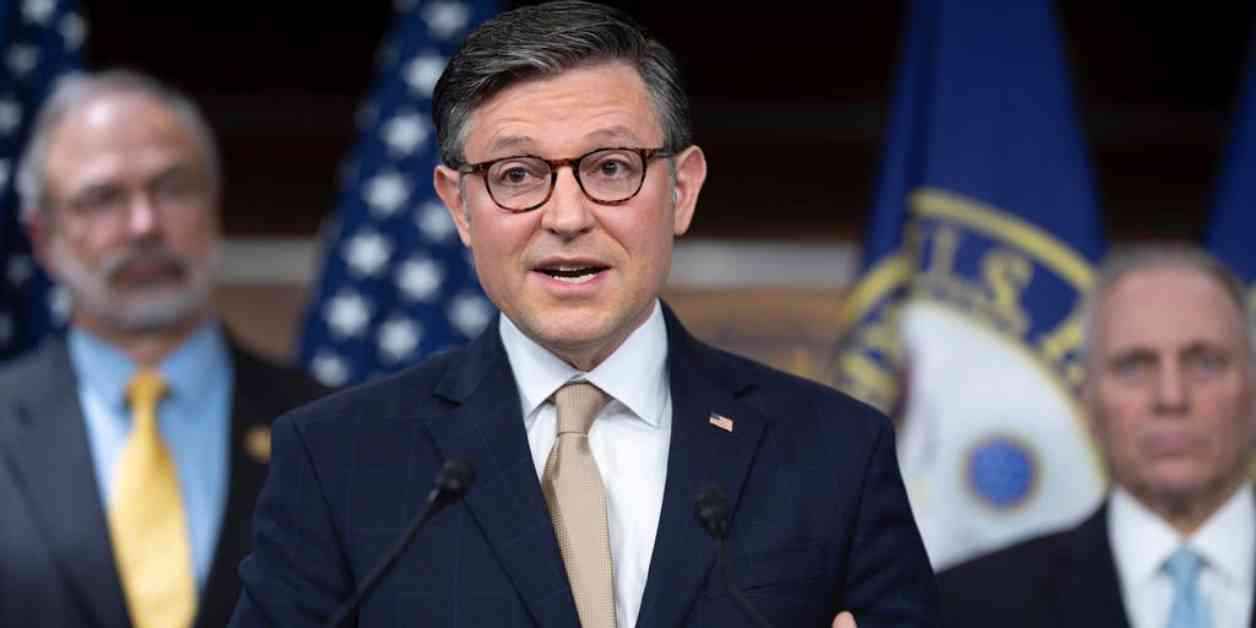The House GOP’s campaign committee is on the offensive, targeting vulnerable Democratic representatives who opposed a measure to fund the federal government and avoid a potential shutdown. As the 2026 midterms loom, the National Republican Congressional Committee has launched digital advertisements against 35 Democrats facing challenging races. In a move that reflects the high stakes of the political climate, the House recently voted along party lines, passing a Republican bill that adjusts non-defense spending by $13 billion, increases defense spending by $6 billion, and grants President Donald Trump greater discretion in fund allocation.
One Democratic outlier, Jared Golden of Maine, broke ranks to support the Republican measure, highlighting the complexity of partisan politics. Conversely, Rep. Thomas Massie of Kentucky, a Republican who dissented from his party, now faces backlash from Trump and his supporters, potentially setting the stage for a contentious primary challenge. The nuanced dynamics of the vote underscore deep-rooted tensions within the House.
The digital ads unleashed by the NRCC blanket the districts of various Democratic representatives, including those of California, Florida, Illinois, Indiana, Michigan, North Carolina, New Hampshire, New Jersey, New Mexico, Nevada, New York, Ohio, Oregon, Texas, Virginia, and Washington state. The NRCC’s spokesperson, Mike Marinella, criticized House Democrats for prioritizing political gamesmanship over the well-being of the American people, characterizing their actions as a display of dysfunction.
In response, House Minority Leader Rep. Hakeem Jeffries of New York and House Democratic Caucus Chair Rep. Pete Aguilar of California defended their party’s stance, citing the detrimental impacts of the Republican spending bill on families. Jeffries highlighted the robust opposition from House Democrats, emphasizing the principled stand against what he deemed reckless legislation. Aguilar condemned the bill as partisan and detrimental to American households, illuminating the stark contrasts in legislative priorities.
### Expert Opinions on the Political Landscape
Political analysts and commentators have weighed in on the recent developments in the House, offering insights into the broader implications of the partisan divide. According to Dr. Sarah Monroe, a political science professor at a prominent university, the showdown over government funding underscores the ideological chasm between the two major parties. “This clash encapsulates the intense polarization that characterizes contemporary American politics, with little room for compromise or bipartisan consensus,” she remarked.
Furthermore, veteran pollster Mark Thompson emphasized the strategic calculations behind the NRCC’s digital campaign, noting the targeted nature of the ads aimed at vulnerable Democratic incumbents. “In a highly competitive electoral landscape, such initiatives can sway public opinion and influence voter behavior, particularly in closely contested districts,” Thompson observed. The intersection of electoral strategy and policy disagreements underscores the intricate interplay of political forces at play.
As the political drama unfolds in the House, the battle lines are drawn, with both parties digging in for a protracted struggle over legislative priorities and electoral prospects. The clash of competing visions for governance and public policy illuminates the challenges and opportunities facing lawmakers in a deeply divided political environment. The ramifications of this showdown will reverberate across the political landscape, shaping the contours of future debates and decision-making processes.
In the fast-paced world of American politics, every vote, every ad, and every statement carries weight, contributing to the intricate tapestry of democratic governance. As the dust settles on the recent House vote, the reverberations of this pivotal moment will echo through the halls of Congress and beyond, shaping the course of legislative action and electoral dynamics in the months and years to come. The fate of the government funding bill may be sealed, but the broader implications of this showdown will continue to shape the political landscape for the foreseeable future.


